Exclusive:Conservative MPs attended Bahrain Grand Prix courtesy of Crown Prince as protesters were arrested nearby
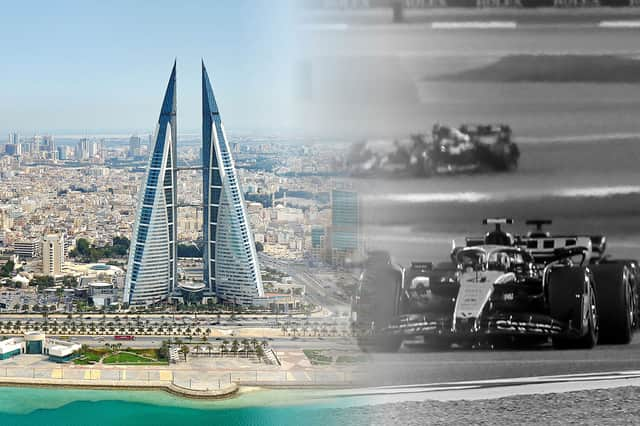

On a warm evening in early March, Maneer Mushaima stood by the side of a road holding up a piece of paper with a few sentences printed on it in English.
It read: “Bahraini government executed my brother Sami in 2017. My brother Redha is serving a life sentence.”
Advertisement
Hide AdAdvertisement
Hide AdBeside him were two more pro-democracy protesters, while a fourth filmed the group on a smartphone, each in turn addressing the camera in Arabic.
Najah Yusuf, whose sign referenced the beating and torture he endured during his own two-year imprisonment for protesting in 2017, shouted: “We demand our simplest rights. It is a shame that Formula One stages a race in Bahrain and makes millions in profit at the cost of our suffering.”
The area was relatively quiet, with the occasional car passing by and little else, but just over a mile away a major sporting spectacle was taking place. The protesters, along with their signs written in English, had hoped to garner some attention from Western media, but the strict policing of the event meant the closest they could get was a petrol station just over a mile away.
Not long after 6pm local time, as the first race of the 2023 Formula One season got underway nearby, the noise of the engines and crowd almost in earshot, with millions around the world tuned in, seven police cars arrived at the petrol station and surrounded the group. Officers arrested all four of them and bundled them into the cars, not before confiscating their IDs and makeshift signs. They were then driven 20 minutes east to a police station. The protesters say no warrants were produced and they were not informed of the grounds for their arrest.
Advertisement
Hide AdAdvertisement
Hide AdWhile all of the group were doubtless afraid, being back in police custody was likely particularly triggering for former prisoners Yusuf and Hajer Mansoor, the only woman in the group, whose son, Sayed Nizar Alwadaei, is currently imprisoned. The UN’s working group on arbitrary detention had in 2019 deemed the detainment of all three to be in violation of international law.
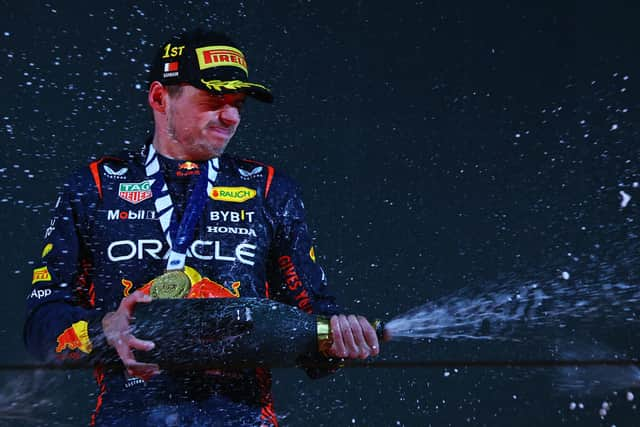

After arriving at East Riffa police station the prisoners report being subjected to humiliating treatment and verbal abuse, with the senior officer present shouting at them, telling Mansoor that both she and her son are criminals, and telling Ali Muhana, whose son Husain Ali Muhana was arrested in 2017 and later tortured before being convicted in a mass trial, that he deserved to be in prison.
Some two and a half hours later, with the Grand Prix now concluded and Max Verstappen set to grace the podium as winner, the four protesters were finally released. They’d been asked to sign a plea that they would not take part in any further “unauthorised protests,” without clarification on whether any charges would be brought against them.
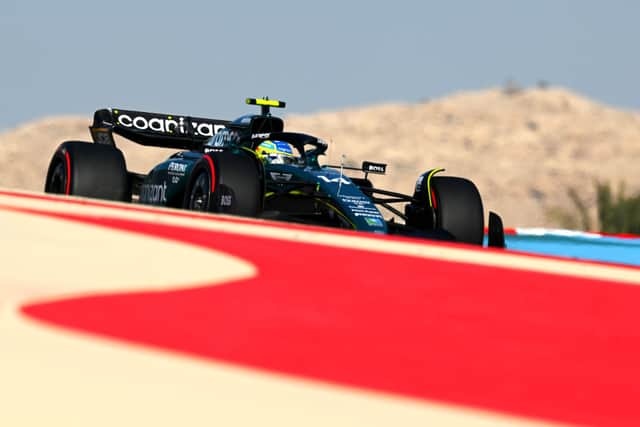

The entire incident, described by the Bahrain Institute for Rights and Democracy (BIRD) as breaching both international and Bahraini law, occurred beyond the gaze of the world’s media, amassed just a few miles away. The UK-based organisation, which is run by a pro-democracy protester who was arrested and beaten in 2012, before fleeing to the UK and receiving political asylum, has raised a formal complaint with Bahrain’s authorities over the incident.
‘An emerging democracy’
Advertisement
Hide AdAdvertisement
Hide AdAs ever, the Bahrain Grand Prix attracted attendees from all over the world, including super-rich spectators and celebrities. Among those present, reportedly enjoying access to the exclusive paddock during the race weekend, were two backbench Conservative MPs whose three-day trip - at a total cost of £18,000 - came courtesy of no less than Prince Salman bin Hamad Al Khalifa, Crown Prince and Prime Minister of the Kingdom of Bahrain.
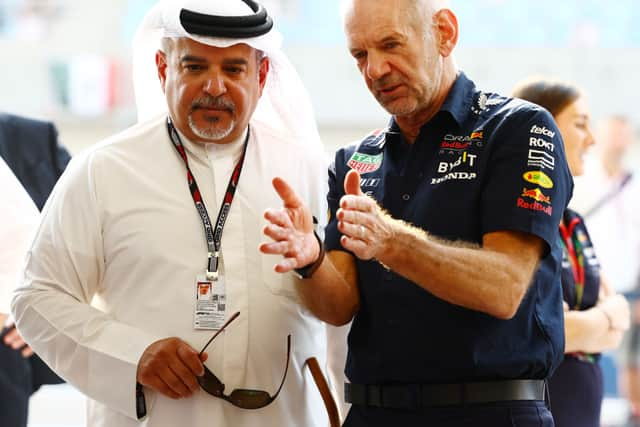

The MPs were James Sunderland and Greg Smith, chair and co-chair of the All Party Parliamentary Group for Motorsport. Contacted about the trip by NationalWorld, Sunderland - who appeared to be speaking on behalf of Smith - described it as a “no-brainer”, and said the pair travelled to Bahrain “to discuss government support to F1”. The donation was registered in accordance with parliamentary rules, and there is no suggestion of wrongdoing on the part of Sunderland or Smith.
He said: “The UK is the global hub for motorsport, which is worth £10.5 billion to the British economy. It also employs 45,000 highly-skilled people in the UK and provides significant global soft power, which is particularly important to emerging democracies such as Bahrain.”
Sayed Ahmed Alwadaei, head of BIRD, and Mansoor’s son-in-law, said that “if [Sunderland] wants to talk about democracy, he should be talking about the pro-democracy leaders who have languished behind bars for more than a decade for simply standing up to the dictatorship and to the ruling family in Bahrain - that’s what the reality is for the Bahraini people.”
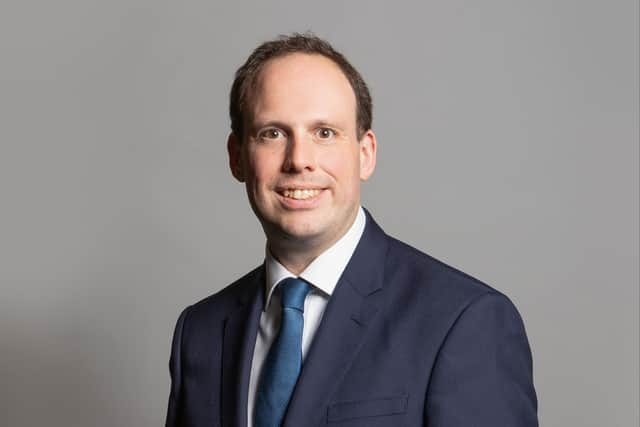

Advertisement
Hide AdAdvertisement
Hide AdDespite consensus from human rights groups, with Amnesty UK describing the country’s record as “extremely concerning”, the UK enjoys strong relations with Bahrain. According to research by BIRD, the UK government has spent more than £10 million of taxpayer money supporting the gulf state in its modernisation efforts since 2012. The UK also maintains a large naval base in Bahrain and negotiations are underway for a major trade deal between the UK and a group of gulf states including Bahrain.
In the last year alone, 12 MPs have been on paid-for trips to Bahrain, with a total value of more than £40,000. The vast majority of these trips were paid for by the Bahraini government or embassy.
Some of those who’ve visited the gulf state, including former prime minister Theresa May and former cabinet ministers Liam Fox and Kwasi Kwarteng, have done so to attend meetings with government figures, or take part in diplomatic events like the Manama Dialogue, which brings together policymakers from across the region.
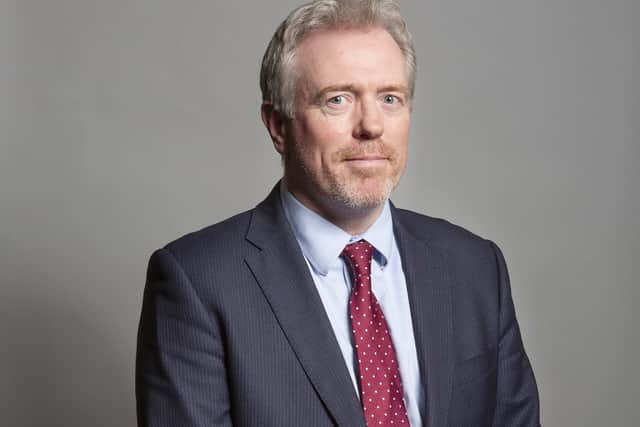

Others have accepted lavish hospitality to travel to Bahrain for events like the Grand Prix, or the massive air show which took place a few months prior to it, in November, which featured a display by the Red Arrows. Four Conservative backbenchers (Adam Holloway, David Morris, Henry Smith and Bob Stewart) attended the air show, one of the largest events of its kind in the world which, like the Grand Prix, serves as an invaluable PR tool for the nation. Campaigners say these events are used to distract from serious human rights issues, like repression of political opposition and independent media, mass incarceration and a ban on most public gatherings.
Advertisement
Hide AdAdvertisement
Hide AdAllan Hogarth, Amnesty International UK’s head of policy and government affairs, said:“It would be deeply worrying if any MP accepting hospitality from Bahrain were to feel compromised when it came to raising human rights issues, including the UK’s trade and security arrangements with Manama.
“Bahrain’s human rights record is extremely concerning, with the authorities outlawing major opposition parties and independent media, jailing prominent opposition leaders and banning most public gatherings.
“MPs’ constituents and the wider public will rightly expect our politicians to always be willing to raise important international human rights issues without fear or favour, regardless of whether they’ve been the recipient of a hospitality trip to Bahrain or any other country offering to fund their travel and accommodation in high-quality hotels.”
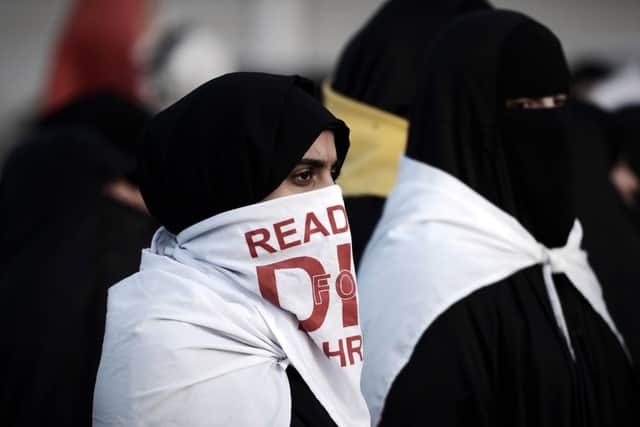

‘Sports washing’
For such a tiny country - at around 750km2, Bahrain is among the smallest nations in the world - the gulf state wields massively outsized diplomatic influence, due in no small part to its vast oil wealth. Like other countries in the region, including Saudi Arabia and Qatar, defenders of Bahrain say it is modernising and moving away from an entirely repressive dictatorship model.
Advertisement
Hide AdAdvertisement
Hide AdBut all of these countries have been accused of using sporting events, like Qatar hosting the FIFA World Cup and the Saudi-backed LIV-Golf tournament, to ‘sports wash’ their reputations, drawing attention away from serious human rights abuses.
Bahrain has the highest rate of prisoners per capita in the region. Of the 3,500 or so people imprisoned there, around 1,200 are thought to be political prisoners, including campaigners, opposition leaders and bloggers who criticised the ruling regime. According to the World Press Freedom Index, compiled by Reporters Without Borders, Bahrain is among the worst 10 countries in the world for repression of journalists - ranking one place lower than Saudi Arabia.
According to research carried out by BIRD and Human Rights Watch, there are more than 25 people in prison in Bahrain facing imminent execution. Three people were executed in 2017 and two more in 2019, with human rights organisations claiming there is strong evidence that convictions were secured in these cases after prisoners were coerced into giving confessions through torture.
The four protesters who were arrested in March believe they are lucky to have been freed, and are all too aware of what could have awaited them if not. The site of the Grand Prix is less than two miles from the site of their protest in one direction, but almost two miles away in a different direction is a prison where many pro-democracy prisoners are currently held, including some who have been sentenced to death.
Comment Guidelines
National World encourages reader discussion on our stories. User feedback, insights and back-and-forth exchanges add a rich layer of context to reporting. Please review our Community Guidelines before commenting.
